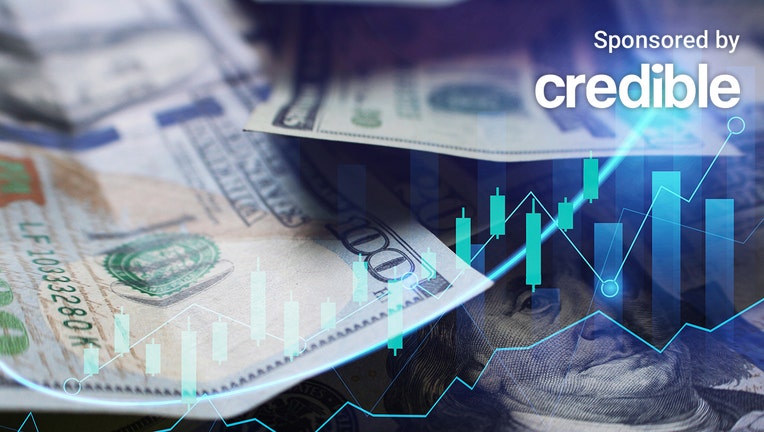Wholesale inflation surges 10% in February: Here's how consumers are affected

Wholesale inflation surged in February, driven by rising gas prices. This could mean higher prices for consumers in the weeks to come. (iStock)
Wholesale inflation surged over the past year as the Producer Price Index (PPI) rose 10% annually in February, according to the latest data released by the Bureau of Labor Statistics (BLS).
The PPI jumped 0.8% in February alone, according to the BLS report, following a monthly rise of 1.2% in January and 0.4% in December 2021. The PPI is a measure of average change in selling prices for domestic producers before their goods reach consumers.
The increase also came after the Labor Department reported annual consumer inflation reached a third consecutive 40-year high in February, rising 7.9% annually during the month. It marked the highest level of inflation since January 1982. But now, supply chain issues are causing costs to rise for producers, which could lead to higher levels of inflation in the months to come as selling prices increase.
Consumers could consider taking out a personal loan to pay off high-interest debt amid surging inflation in order to lower their monthly expenses. Visit Credible to find your personalized interest rate without affecting your credit score.
MORTGAGE RATES INCREASE AS RISING INFLATION CAUSES CONCERN AMONG INVESTORS
Federal Reserve raises interest rates to combat inflation
Similar to the Consumer Price Index (CPI), the price increases for the PPI were led by growth in food, energy and trade services, according to the BLS report. In fact, nearly 40% of February’s monthly increase was due to higher gasoline prices, which increased 14.8%.
As inflation surges, the Federal Reserve announced Wednesday at its March meeting that it is raising the federal funds rate by 25 basis points. The central bank's rates increase is its first in three years, and economists forecast the Fed will likely continue raising rates this year and next.
"Job gains have been strong in recent months, and the unemployment rate has declined substantially. Inflation remains elevated, reflecting supply and demand imbalances related to the pandemic, higher energy prices, and broader price pressures," the Federal Open Market Committee said in a statement following the meeting.
Now, according to insights from Morning Consult Economist John Leer, raising rates too quickly could slow business growth.
"The Fed faces a delicate balancing act to achieve a soft landing," Morning Consult said in a March 15 economics report. "It wants to raise rates to fight inflation, but it doesn’t want to prematurely end the recovery. The escalating war in Ukraine is going to make it even harder for the U.S. to continue to grow this year."
Borrowers can consider refinancing their home loan in order to take advantage of interest rates before they rise any further and save on monthly expenses. Visit Credible to compare multiple mortgage lenders at once and choose the one with the best interest rate for you.
INFLATION RISES TO YET ANOTHER NEW 40-YEAR HIGH IN FEBRUARY
Ukraine-Russia conflict could send prices higher, economist says
President Joe Biden continues to issue more sanctions against Russia amid the country's conflict with Ukraine, recently announcing a ban on U.S. imports of Russian oil, gas and energy and targeting what he referred to as Russia's "main artery."
"I'm going to do everything I can to minimize Putin's price hike here at home and coordination with our partners," Biden said.
As the conflict continues, prices could continue to surge despite the Fed’s best efforts to control inflation, according to Credit Union National Association Senior Economist Dawit Kebede.
"An interest rate increase from the Federal Reserve will slow down consumer demand by making the cost of borrowing more expensive," Kebede said in response to rising inflation. "However, there is little that the Fed can do to control prices caused by a global conflict, just like there is little it can do to improve supply chain disruptions."
Consumers who are looking to reduce their monthly expenses before interest rates rise even higher could consider refinancing their private student loans. Contact Credible to speak to a student loan expert and get all of your questions answered.
Have a finance-related question, but don't know who to ask? Email The Credible Money Expert at moneyexpert@credible.com and your question might be answered by Credible in our Money Expert column.

